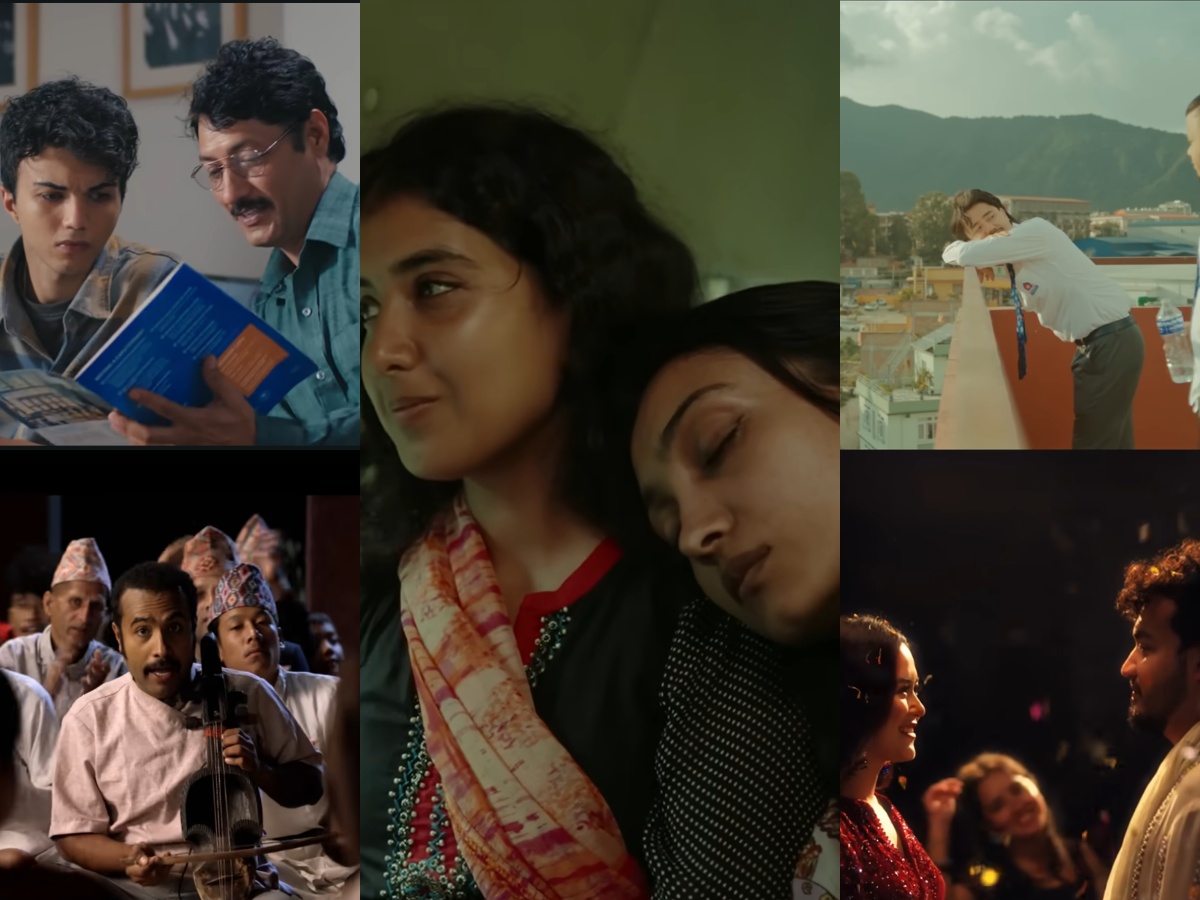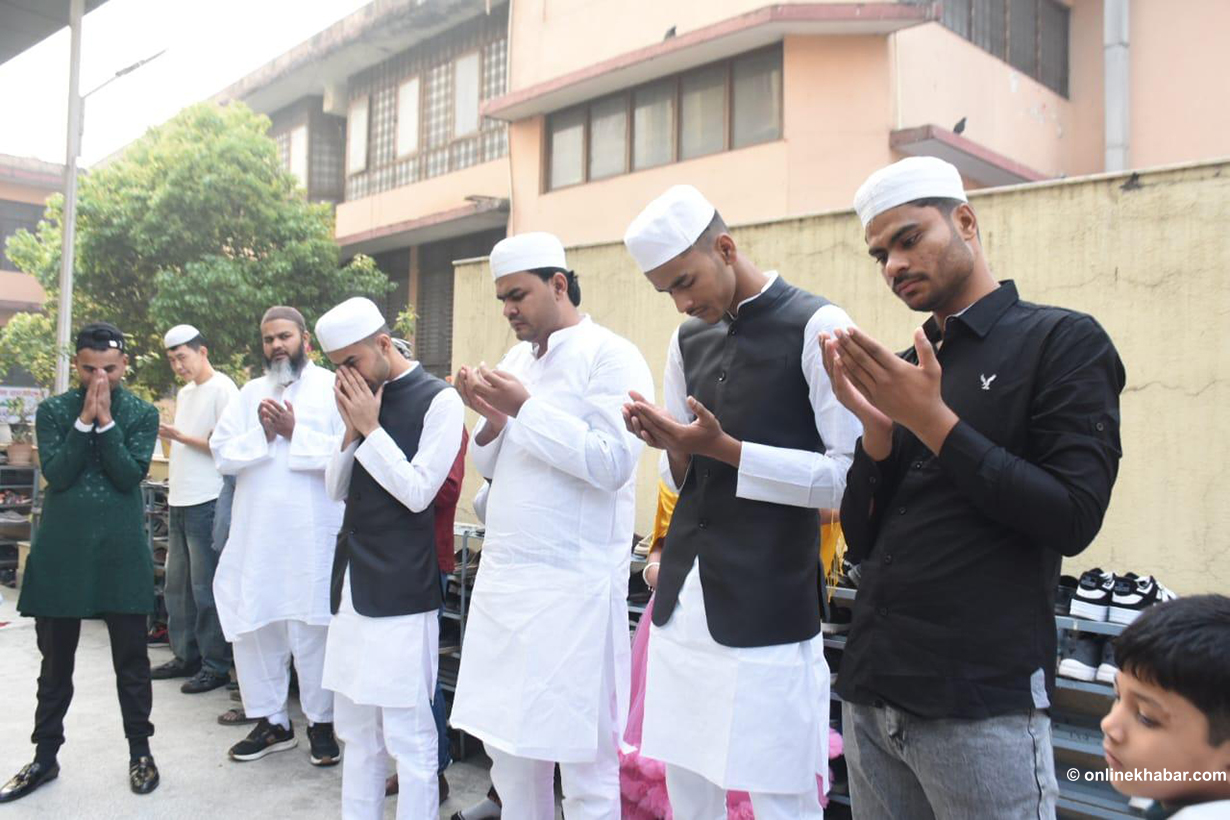Due to one reason or another, Prakash Saput is always shrouded in controversies. Each time he releases his songs, he faces constant criticism and unpleasant comments.
His latest release Sakambari once again brought him into the spotlight. Each time he presents a piece of art, it sparks public discourse.
His old songs still echo in houses and various public settings. For many, Saput’s music along with its music videos serve as a reflective mirror, offering a clear view of society, its culture, and the lifestyles of people.
Saput has a great fan base, but gender activists often criticise him for objectifying women and for failing to justify the women characters. And people once again have expressed their dissatisfaction, claiming that his new video follows a similar pattern.
Responding to the new song, Prakash Saput’s admirers, on the one hand, have lauded him for bringing the masterpiece to life. On the other hand, critics have taken on social media, asking Saput to craft meticulously, to seriously consider gender-related issues.
After facing a bunch of rebukes from gender activists and critics, Prakash Saput has defended his work by saying that he is a component of this society, and he only reflects those issues he has observed in this society.
Many women are seen making a reel on this song, with enormous pride and joy. But should women celebrate a song like Sakambari, considering its lyrics that seem to undermine the power of women?
Weak female characterisation

Under the watchful eye of Prakash Saput, who has been living in the city for over five years, the character’s mother entrusts her daughter, Phoolmaya, to him. Saput reassures the mother that he will provide for her daughter’s needs and take care of her.
In a cramped micro-van, Phoolmaya expresses her desire to play a role in a music video. She is convinced that if she gets a chance to act in a music video, her life will take a positive turn.
Prakash Saput assures her, and she is quick to trust him. In between the conversation, Saput intentionally reaches for Phoolmaya’s thighs, and it is at this moment the realisation dawns on her: This man whom she calls ‘dai’ is an opportunist, and city life is going to take a toll on her.
Phoolmaya starts as a waiter in a bar where Saput is a lead musician. It was Saput who helped her find a job. The regular customer, Sunil Thapa, casts an evil glance at Phoolmaya, and her life turns upside down afterwards. She comes in contact with Thapa, who tempts her with money.
Money was all that Phoolmaya needed at that point in her life. The city swallows her innocence and turns her into a woman who can do anything for money and fame. In the initial phase, she gets harassed by a bunch of people — the owner of the bar, customers, and even Saput, whom she calls ‘dai’ with great respect.
It is said that in South Asian countries, aspiring female actresses must undergo so much suffering, including sexual abuse and harassment. In many cases, they are required to do what the director wants them to–it even includes satisfying the director by offering their bodies.
The songwriter has hinted at this lewd act. Soon a director lures Phoolmaya by offering a role in a music video and she happily accepts his offer. By then, Phoolmaya has renamed herself Sakambari, the name of a female character from Sirish Ko Phool by Parijat.
During the span between 9:49 and 10:05, you’ll see a half-naked man dancing with Sakambari. I cannot understand why the male nudity has been normalised. The director of this song has overlooked nuances, rendering plenty of room for criticism. Nudity, be it female or male, must be avoided in visual work. It is something that the director must keep on a note before he ventures to make a music video once again.
At one point, the so-called ‘dai’ of Sakambari yells her saying that it is only a matter of time before the man stops chasing her. Sakambari cannot stand the statement coming from his mouth, so she bravely replies, “You are no different from other men. Everyone, including you, has used me.”
After Sakamabri confesses this, everyone’s eyes are drawn to her. She goes on telling, “My mother could only bear daughters, so my father left her to marry another woman. The responsibility to take care of the family came upon me. I wanted to be a good actress, earn money and fame, and give a bright future to my sisters. Whatever I did was out of compulsion. And you are all responsible for this. Even I am a culprit for losing track.”
The narrative of Sakambari’s past alludes to a patriarchal mindset that appears to downgrade women. Within society, there are still numerous instances of husbands abandoning their wives simply because they have not been able to give birth to a male child.
Sakambari, in the end, questions, “Where is it written that only females are characterless? Why can’t men be deemed as characterless?”
The music video ends when Sakambari gets a call from an assistant of the minister asking her to get into politics. He mentions that the party requires her help, and she smiles at this idea. Then the song ends with a question, “Will Sakambari get into politics?”
Need for the change
Prakash Saput will release a sequel to this song shortly, and when the song is out, the audiences will love to see a solid and independent Sakamabri. While some of the parts of the music video resonate well with audiences, it’s still problematic to see women always on the receiving end.
Instead of reflecting the misconduct, the artists also must be able to imagine an ideal society where every gender is equal and where there is equal opportunity for everyone.
Why cannot Prakash Saput bring a wave of change by introducing a strong female character?
If he does so, society might view women differently, and it will instil more confidence in women. The artists must take a step forward in inviting a change through their works–they must build a strong female protagonist if they believe in making a change.
























